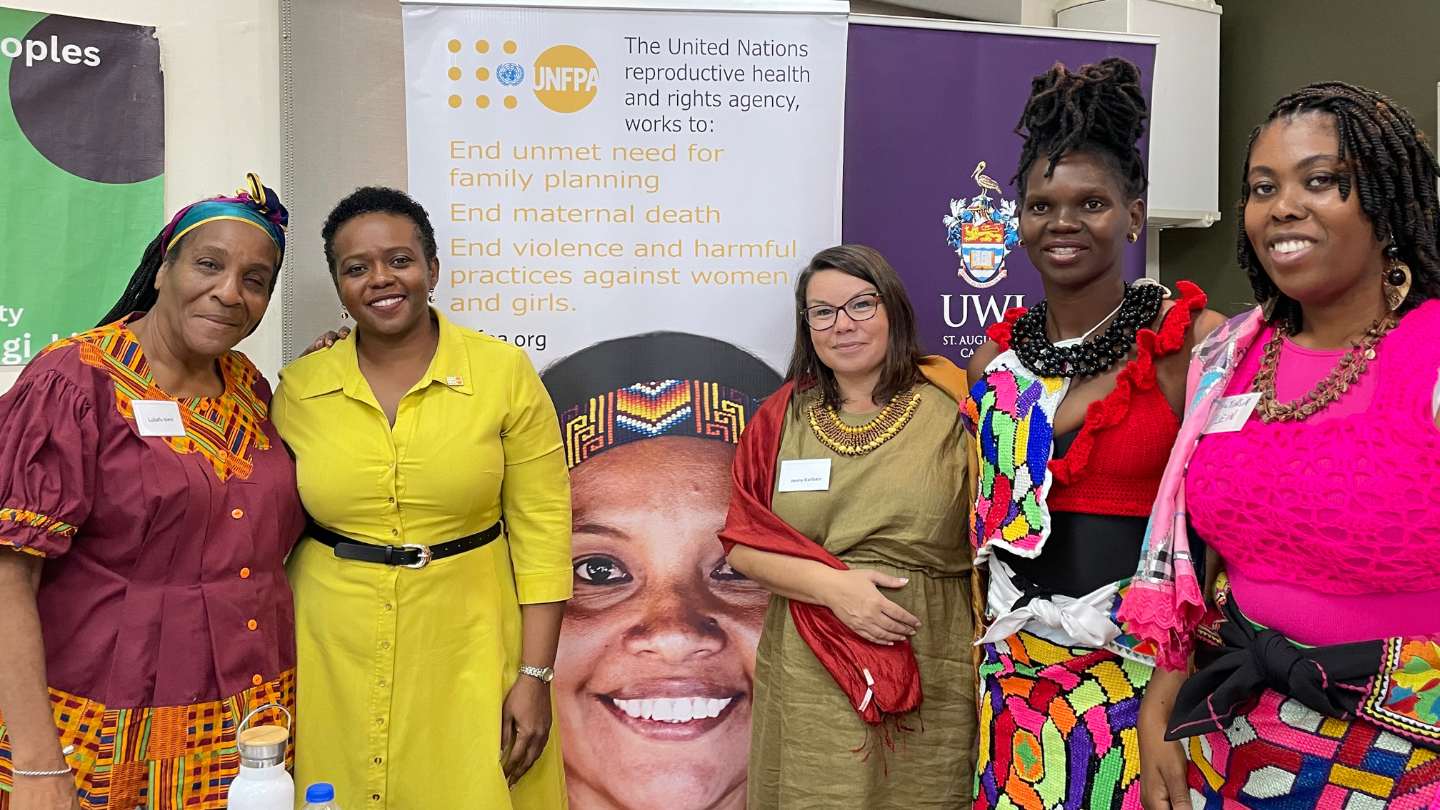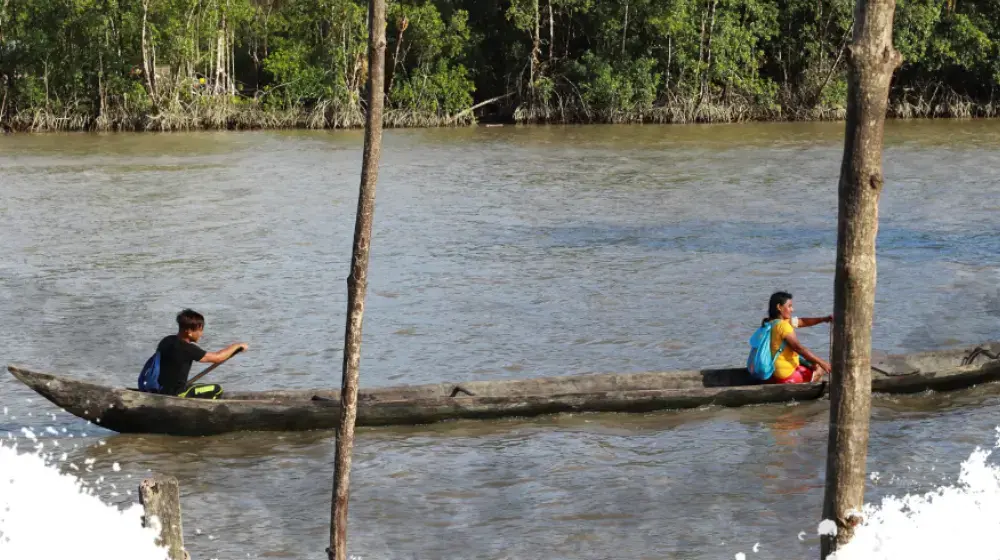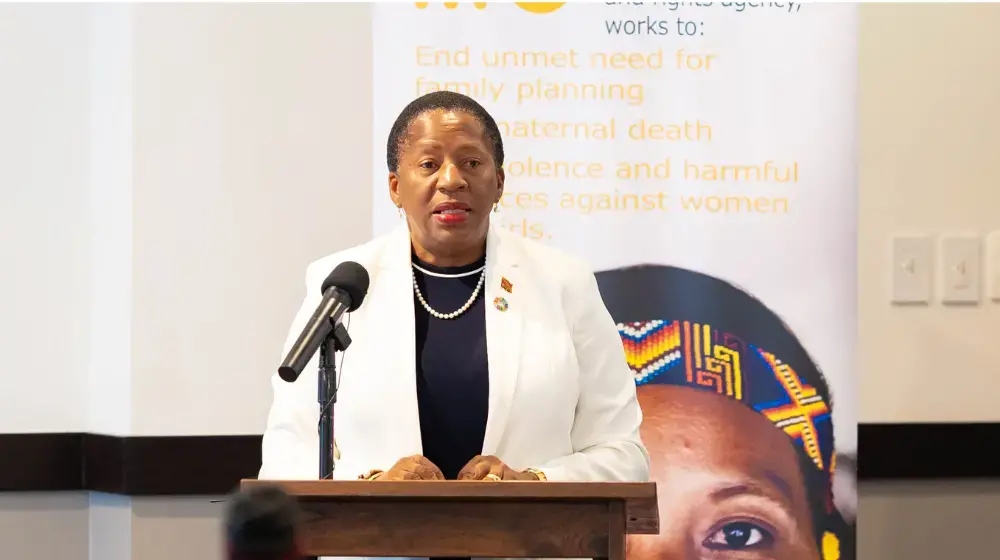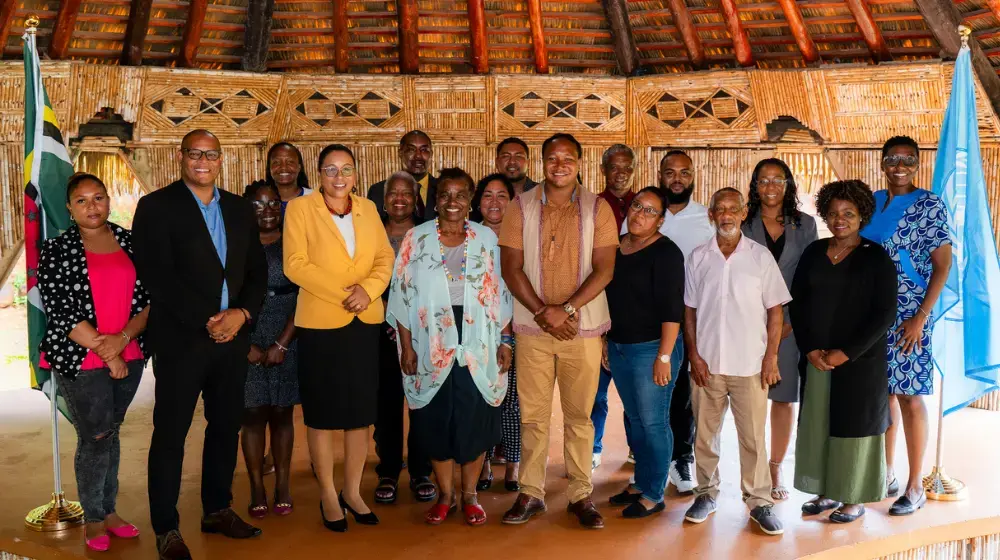In November 2024, Trinidad and Tobago hosted the United Maroon Indigenous Peoples (UMIP) 2nd Indigenous Maroon Gathering and Academic Conference, which aligns with the United Nations Population Fund’s (UNFPA) mandate to ensure that every individual has access to sexual and reproductive health services, education, and rights. The event provided an important platform to address the unique health and developmental needs of Indigenous and Maroon communities. By supporting such initiatives, UNFPA reinforces its commitment to leaving no one behind, empowering marginalized populations, and fostering dialogue on cultural preservation and health equity. Amid the vibrant celebrations of culture, resilience and progress, two remarkable women - Priscillia Fauci and Lutencia, stood out. Both shared stories of their past work with UNFPA and how those experiences laid the foundation for their leadership journeys.
Their interviews at the conference revealed an inspiring blend of advocacy, cultural pride, and dedication to uplifting their communities, positioning them as beacons of hope and change for Suriname and beyond.
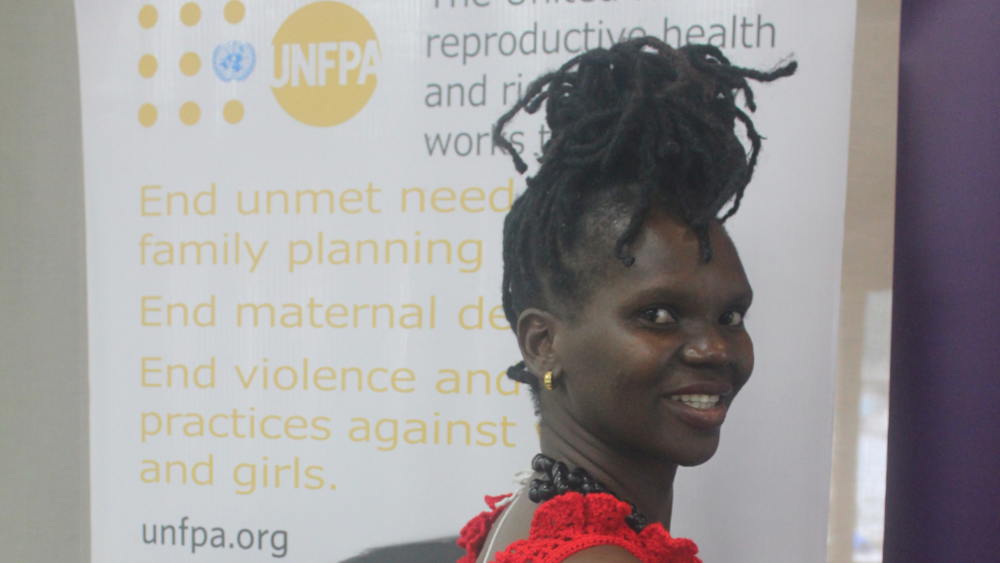
Priscilla Fauci, now the Deputy Director of Tourism at Suriname’s Ministry of Transportation, Communication, and Tourism, credits her journey to her early involvement in the Youth Advocacy Movement. This volunteer-based group focused on sexual and reproductive health education, fostering openness and empowerment among Suriname’s youth.
“We worked as volunteers in schools and communities, teaching young people about critical issues like condom use through practical, hands-on sessions,” she shared during her UMIP interview. This innovative approach left lasting impressions, transforming lessons into actionable knowledge.
Priscilla didn’t stop there. She advanced her expertise by participating in gender-based master training and eventually became a senior trainer herself. Supported by UNFPA, she worked tirelessly to implement youth-focused programs, bridging educational gaps in her community.
Today, her leadership in government is deeply rooted in these advocacy experiences. “What you learn now is what you will have when you get older,” she shared, a poignant Surinamese saying that guides her work. Priscilla’s journey proves that the foundation built through service and education can lead to a lifetime of impact.
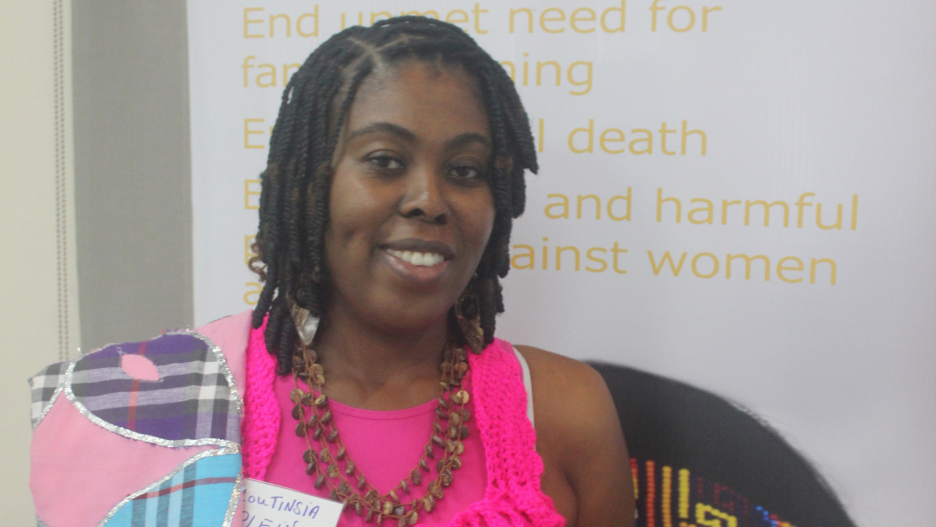
Alongside Priscilla, Pulen Lutencia stands as a powerful figure advocating for Maroon communities in her role as Deputy Director at the Ministry of Regional Development and Sport for the directory of maroons. Born to parents from the Matawai and Samaka Maroon tribes, her cultural identity is both a source of pride and a driving force behind her work.
“Being Maroon is my identity,” she expressed passionately. “Wherever I go, whether it’s in Suriname or abroad, I carry my culture with me—my attire, my dance, my language.”
Lutencia’s career is dedicated to creating sustainable projects for Maroon communities in Suriname’s interior. One notable project, in collaboration with UNFPA, focused on educating youth about adolescent health, sexually transmitted diseases, and menstrual health. Her efforts ensure that even the most remote communities have access to vital knowledge and resources.
Reflecting on her early years, Lutencia credits her involvement with organizations that encouraged open dialogue about taboo topics. “These experiences taught me to speak freely about issues like sexual health and adolescent development,” she shared.
At the UMIP Conference, Lutencia’s presence in her full Maroon attire symbolized her commitment to her roots. “I am never ashamed of who I am. My clothing, dance, and language tell the story of my heritage,” she said. As both a cultural ambassador and a government leader, she integrates her identity into every aspect of her work.
The journeys of Priscilla Fauci and Pulen Lutencia demonstrate the transformative power of education, advocacy, and cultural pride. From grassroots volunteerism to national leadership, their stories inspire others to embrace their identities and work toward meaningful change.
Their shared presence at the UMIP conference underscores the importance of collaboration and cultural celebration in advancing Indigenous and Maroon communities. For young people everywhere, Priscilla and Lutencia serve as living proof that a commitment to knowledge, service, and heritage can lead to profound impact and enduring legacies.

